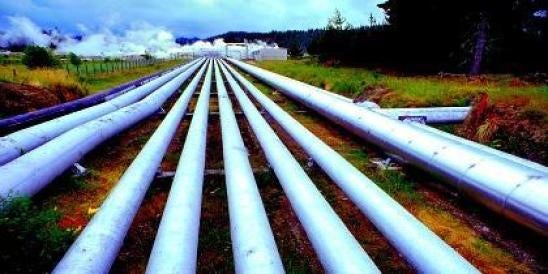After nearly a year of discussions in both chambers, the U.S. Congress passed the Pipeline Safety, Regulatory Certainty, and Job Creation Act of 2011 (HR 2845) and presented it to the President on Dec. 23, 2011. The proposed changes would greatly increase the review and oversight of pipeline systems and pipeline safety requirements. Some of the major provisions include:
-
Additional requirements imposed on pipeline owners and operators:
-
The Act requires pipeline owners/operators to verify records for accurate contents relating to physical and operational characteristics and to confirm the maximum allowable operating pressure (MAOP) for pipes located in High Consequence Areas as well as Class 3 and Class 4 areas. In situations where the pipeline records are inadequate to confirm the MAOP, the owner or operator must “reconfirm a maximum allowable operating pressure as expeditiously as economically feasible; and . . . determine what actions are appropriate for the pipeline owner or operator to take to maintain safety until a maximum allowable operating pressure is confirmed.” 49 U.S.C. § 60139(c). This process can be costly. In addition, all exceedances of the MAOP in each segment of a pipeline must be reported to the appropriate authority within five days after the exceedance occurred.
-
The Act extends to FY2015 the authorization of the Pipeline Safety Improvement Act of 2002. The fees collected under 49 U.S.C § 60301 (pipeline user fees) totaled $90.7 Million. The Act also establishes a Pipeline Safety Design Review Fund in the Treasury.
-
Applicants seeking a waiver of a pipeline safety requirement under 49 U.S.C. § 60118(c) or (d) are no longer entitled to judicial review of a waiver denial.
-
Within two years of enactment, regulations are to require the use of automatic or remote controlled shut-off valves for new transmission pipelines “where economically, technically, and operationally feasible.”
-
-
Increases the penalties for violations of pipeline safety requirements:
-
Civil penalties for violating pipeline safety rules were increased from $100,000 per day/$1 million maximum for a series of violations to $200,000 per day/$2 million maximum for a series of violations. The Act defines a “major consequence violation” to be an incident resulting in one or more deaths or injuries or illnesses requiring hospitalizations and environmental harm exceeding $250,000 in damages.
-
The administrative penalty caps which limit the amount of civil penalties that can be sought in administrative enforcement proceedings are not applicable to civil penalties issued under 49 U.S.C. § 60120 for pipeline transportation and pipeline facility safety violations.
-
USDOT has authority to seek civil penalties against persons that interfere and/or obstruct an inspection or investigation.
-
-
Requires pipeline safety-related studies:
-
PHMSA must conduct a study on the status of cast iron pipe replacement every other year.
-
PHMSA must conduct a study on the impacts pipeline safety has on damages experienced by third parties.
-
PHMSA is to analyze whether integrity management programs should be expanded beyond high consequence areas and whether the expansion of the integrity management programs would reduce the need for class location requirements.
-
The Secretary of Transportation is to review and report on the sufficiency of safety regulations for gas and hazardous liquid gathering lines both onshore and offshore, including the inlets of the Gulf of Mexico, within two years of the effective date of the Act.
-
PHMSA must conduct a study on the technical limitations of current leak detections systems, with an emphasis on the ability to detect ruptures and small leaks for high consequence areas.
-





 i
i


